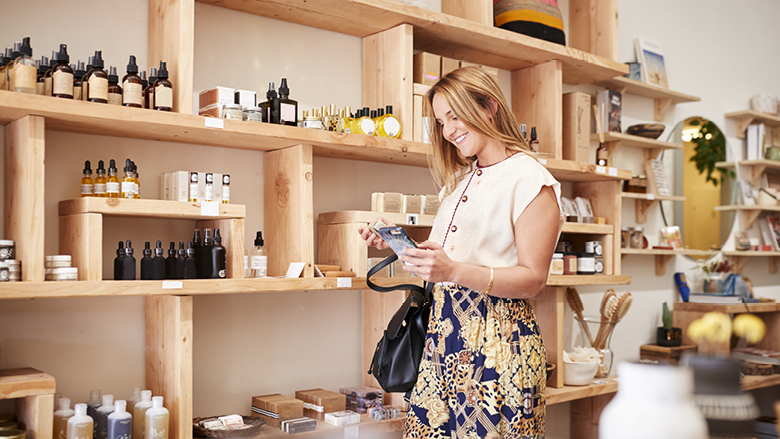The pandemic has been a primary driver to more than a third of consumers’ reassessing their priorities and making deliberate choices about where they shop and what they buy. The value of purpose varies by category and is highest for food and beverage service, recreational goods and personal care services and products.
Commonwealth Bank’s Executive Manager, Consumer and Diversified Industries, Jerry Macey, said: “The Report findings show the powerful influence of purpose and how it can increase a consumers’ loyalty, advocacy and spending. The pandemic has accelerated a shift in Australian consumer habits and we have seen how shoppers are looking for their own values to be reflected back in the brands and businesses they support.
“Despite this trend emerging from the pandemic, the focus on instilling a social purpose will likely continue for the long term. Consumers have made it clear they are looking for an authentic, all-encompassing approach that is embraced throughout the organisation. ”
Purpose-led businesses benefit in a number of ways with consumers saying they are more forgiving towards a brand with an authentic purpose (38 per cent) and will actively seeking them out (35 per cent). They are also more likely to regularly shop at (35 per cent) or invest in (31 per cent) purpose-led brands.
Passionate about the business’ social impact, Abdullah Ramay, CEO of Pablo & Rusty’s Coffee Roasters hopes to positively impact people and the environment through coffee. He believes it can be done without sacrificing profitability yet the change needs to be genuine. With 26 per cent of their customers buying from them because of its purpose, Abdullah sees the benefit in growing the business as reaching greater scale allows them to make more sustainable choices.
“The consumer makes the judgement call and they are very invested in the brand, which is powerful for growing the business. Being purpose-led is a medium-to-long-term journey that brings clarity and easier decision-making. Simply running two marketing campaigns will not suffice and businesses that make empty claims will lose customers,” said Abdullah Ramay.
Commonwealth Bank’s Jerry Macey continues: “Purpose is important, but it needs to be authentic in order to add value. Today’s consumers are very well informed and can quickly determine whether a brand is genuine about the causes they support. Their connections with brands are often personal, and so they are likely to feel personally let down if brands fail them with inauthentic, short term campaigns.”
Consumers’ views on how businesses can demonstrate genuine social purpose:
- Businesses need to engage their employees to ensure their purpose is meaningful across the whole organisation (66 per cent);
- A business purpose needs to align to the category they operate in (59 per cent);
- Businesses should seek input from customers on social purpose (56 per cent);
- Make a long-term commitment to a social purpose or cause to demonstrate genuine intentions (55 per cent);
- A business should regularly communicate with customers about their purpose (53 per cent).
CommBank Webinar
CBA will be hosting a webinar on Wednesday 6th April 2022 featuring Commonwealth Bank’s Executive Manager, Consumer and Diversified Industries, Jerry Macey presenting the Consumer Insights Report research findings, exploring how does purpose influence consumers and tips for businesses on how to implement an effective purpose strategy. There will also be a Q&A with Abdullah Ramay, CEO Pablo & Rusty’s Coffee Roasters and Andrew Davies, CEO, B Lab Australia & New Zealand on embedding sustainability and social purpose into a business. Register for the webinar here.
About CommBank Consumer Insights Report:
CommBank Consumer Insights is an exclusive, wide-ranging analysis of the Australian consumer. This edition examines the role of purpose in consumers’ shopping behaviour and is based on an online quantitative survey conducted by ACA Research on behalf of the Commonwealth Bank. The survey was conducted in July and August 2021 and was completed by 5,639 consumers of goods and services. The sample was selected to ensure the results are nationally representative. All statistics and references to consumers in this report are based on the responses to the survey unless otherwise stated.



